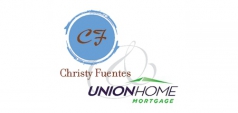 |
 |
|
|
Get Organized with These 5 Money
Management Apps
|
|
 Gone are the days of balancing your checkbook by hand or trying
to make sense of multiple investment statements. Smartphone apps
linked with their web counterparts make the most of your banking and
investment information, helping you budget and save along the
way. Here are some of the best:
Gone are the days of balancing your checkbook by hand or trying
to make sense of multiple investment statements. Smartphone apps
linked with their web counterparts make the most of your banking and
investment information, helping you budget and save along the
way. Here are some of the best:
Mint from Intuit is
free, easy to use and lets you view financial data from multiple
sources on multiple devices. Mint provides
handy tools for planning and budgeting, and alerts you when bills are
due however the app cannot access funds nor scheduling
outgoing payments. The software is supported by ads based on a user's
activity profile.
Pageonce
connects your bill accounts and pays securely from a single location.
The app alerts you to bill due dates, overages,
late fees, and suspicious activity. Pageonce supports utility
companies, credit cards, insurance, phone and thousands of other
providers and is free with no ads.
Venmo lets friends
send and receive money from each other, eliminating the hassle of
exchanging cash or awkward IOUs. There is no
fee for receiving money but there is a 3 percent fee to send money,
unless you use funds from your existing Venmo balance, a bank
transfer, or a valid debit card.
Wikinvest Portfolio Manager, recommended by both
Barron's and Forbes, is free with ads and allows you to track your
investment
portfolio and follow the markets. It does not allow open access to
your accounts, however automatically updates your brokerage
holdings nightly. It currently imports data from over 60 brokerages.
Your Bank may already have an app that manages your accounts, deposits
your checks by photo, pays bills, makes wire transfers, and
moves funds between accounts. Bank apps are usually free without ads.
Other Popular Apps you may want to check out include HelloWallet, Balance, Accounts
2, and if your employer uses Concur for tracking expenses, try the
Concur
Mobile App.
|
Investment Accounts
Explained
|
|
 You've just finished your taxes, so now is a great time
to re-visit your retirement
investment strategy. Here is a summary of key investment engines you
might consider
heading into 2013:
You've just finished your taxes, so now is a great time
to re-visit your retirement
investment strategy. Here is a summary of key investment engines you
might consider
heading into 2013:
Money Market Account - A savings account offering greater
interest in exchange for
larger deposits; restrictions include monthly transaction limits and
minimum balance
requirements, which vary bank to bank.
401(k) Plan - An investment plan established by employers for
deferring a portion of
an employee's income. Earnings in the account accrue on a tax-deferred
basis, but
income tax applies upon withdrawal with some exceptions. Employers may
also make
matching contributions for employees or create profit-share
provisions.
IRA - There are two main types of IRA retirement accounts:
Traditional and Roth. They
differ by how your money's taxed–going out (Traditional) or in
(Roth), but your
money grows tax-free while sitting in both.
With a Traditional IRA you deposit
pre-tax income, which may also be tax-deductible. You'll pay taxes on
this money when
you take it out, but if this is before you're 59 then you'll also pay
a 10 percent
penalty on the amount withdrawn. Two types of Traditional IRAs also
exist for
self-employed and small business owners:
| |
SEP:
these contributions are tax-deductible and allow a higher total
contribution. |
| |
Simple:
unlike a SEP, employees can contribute to Simple IRAs. Employers are
also required to make a contribution based on the employee's
salary. |
For a
Roth IRA you contribute income for which you've already paid
taxes, and
contributions are not tax-deductible. You can take money out anytime
but the taxman
may penalize you if you take out more money than you originally put in
(which could
happen if your money's grown substantially in the account through a
smart investment
strategy).
|
Airline Fees Being
Bundled
|
|
 Fee packages make it easier for you to
calculate the true cost of your trip. But
they're still just extra charges you might want to skip. Fee packages make it easier for you to
calculate the true cost of your trip. But
they're still just extra charges you might want to skip.
By Susannah Snider, Kiplinger.com
Customers hate fees, so airlines are rebranding them. American and
Delta are calling
some add-ons "fare choices" and "trip extras." New monikers, same old
fees. For $68
round-trip over the base fare, for example, American Airlines' Choice
Essential
entitles you to a checked bag, reservation change and Group 1
boarding. Delta's $21
Ascend bundles in-flight Wi-Fi and priority boarding.
The two fee combos are variations of the same concept, but the payment
method and
potential savings differ. American's choices are rolled into the
ticket price, so
when you search itineraries on AA.com, you'll see the basic fare next
to Choice
Essential and other bundles before you click "buy." Delta's fees are
tallied
separately and purchased online or at the gate.
Expect more airlines to jump on the bundled-fees bandwagon. Although
fee packages
offer a more predictable way to calculate the true cost of your trip,
weigh the
savings before you commit. Checking a bag round-trip on a domestic
American flight
costs $50, so adding $18 to snag priority boarding and cover a
possible $150 change
fee makes sense if you expect your itinerary might change. But the
extras in Delta's
Ascend would cost $23 purchased separately, saving just $2.
Reprinted with permission. All Contents ©2013 The Kiplinger
Washington Editors.
Kiplinger.com
|
|





